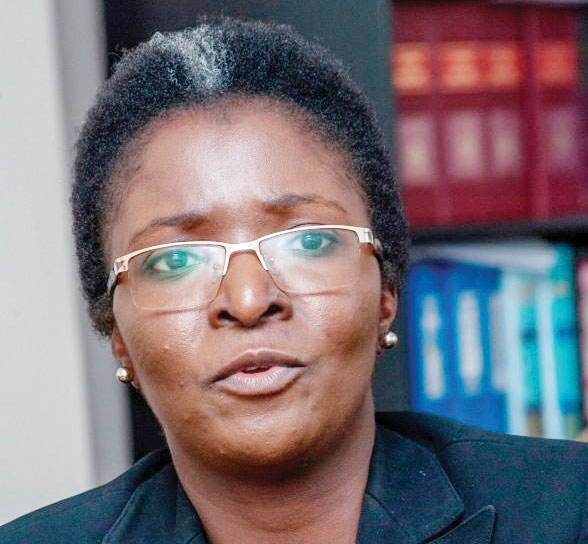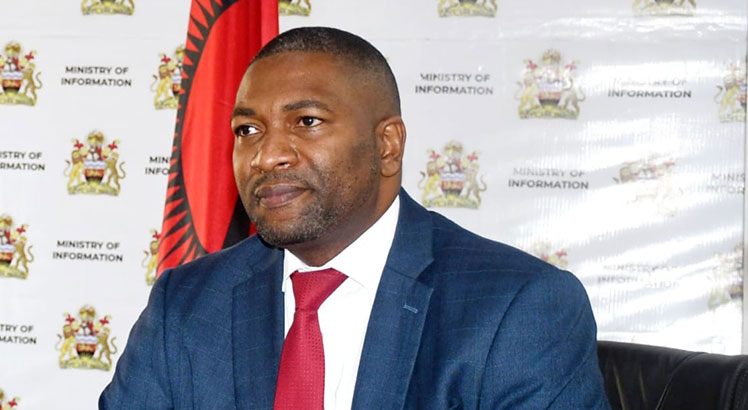…How Forest, Police, and MRA officials help charcoal smugglers in exchange for bribes

The sight of officers clad in service uniforms and armed with security equipment at Malawi’s roadblocks gives hope that the country’s resources are safe.
But if a PIJ/Weekend Nation investigation into how officers who are supposed to stop illegal charcoal transportation are allowing the smuggling of the contraband in exchange for bribes is anything to go by, then the men in uniform could be enablers of Malawi’s disappearing forest cover, not its protectors.
Our four months sting between October 2020 and January 2021 has uncovered—with pictures, video, and mobile money transfer evidence—how a syndicate involving some officers in the Malawi Police Service (MPS), Forestry Department, Directorate of Road Traffic and Safety Services (DRTSS) and the Malawi Revenue Authority (MRA) have been giving charcoal racketeers a smooth ride from Zalewa to major markets in Blantyre City. By posing as a charcoal transporter, our reporter set out to discover how thousands of bags of charcoal find their way to Blantyre City daily despite numerous checkpoints and police patrol operations launched by law enforcers.
The Sting

Our preliminary investigations led us to Neno District where we met charcoal transporters. We were told that for us to understand how it works, we should join the charcoal transporting business.
It took us about seven weeks from October for this journalist to join the business, during which he was accompanied by some transporters just to observe how they are dealing with roadblocks so that he could try it out on his own. And so, on November 21, 2020, this reporter joined the business as a transporter, ready to ferry charcoal to the dealers in Blantyre from Neno District.
To achieve this, he partnered with a transporter who owns a five-tonne (Hino) lorry in Blantyre and paid him K200 000(US$258.52) for this day’s job with the understanding that the money that the charcoal owners will pay for the transportation of the charcoal will also be his, with the PIJ/Weekend Nation not profiting from the undercover operation.
This lorry carries 120 bags of charcoal. We left Blantyre at 11 am for Neno District and arrived around 4 pm. Because of the topography of the area, and it is difficult to get bags of charcoal in one place, we went to different areas to get the goods within the district. For the first day, we collected 60 bags and spent a night there.
Around 7 am the following day, we continued gathering the charcoal from various spots before starting off with a complete load of 120 bags.
At around 2 pm, all bags were loaded on the track and covered with a tent. By 3 pm the lorry was ready to start off for Blantyre with its load. But we waited for sunset as our connections with the law enforcement could only facilitate our movements under the deep cover of darkness.
At 6 pm, we left for Chifunga Camp in Neno where all the illegal charcoal transporters gather to start off together. We arrived at the camp around 8 pm. Minutes after our arrival, our ‘fellow’ transporters reminded this reporter to make sure that ‘his’ vehicle has been cleared by Southern Region Forestry Office.
At the regional office, there is a senior official [name and official title withheld], who is responsible for curbing the trafficking of all illegal forestry products. This reporter talked to him on the phone and agreed that an amount of K20 000 (US$25.85) per vehicle should be sent for his vehicle to have safe passage.
This reporter sent K20 000(US$25.85 to the official’s TNM Mpamba number and he confirmed to have received the money. Other transporters did the same while some paid upon their arrival in Blantyre.
“Inu ndi alendo bwanayu sakukudziwani ndiye muperekeretu, ife amadziwa kale, tikapereka tikakafika [You are new in this illegal charcoal transportation business, so you have to pay in advance because the big boss at the Forestry Department does not know you,” said one transporter.
On this day, there was a convoy of 12 vehicles transporting charcoal from Neno to Blantyre. Nine tracks were open vehicles with charcoal stacked under tarpaulins while the other three were vans.
Out of the 12, four were less than five tonnes and carried 120 bags each totalling 480 bags, while the larger ones (over five tonnes) had a total of 1 600 bags with each carrying 200 bags on average. So, a total of about 2 100 bags were trafficked.
At 8 pm, we waited for a green light from duty police officers and forest officials at Zalewa Roadblock before starting off from the camp. At 9:30 pm the officers called and told us to proceed as that was the right time to pass through the roadblock without drawing too much attention.
Just before 10pm, we left Chifunga Camp and when reached Pa Nkhumba near Puma Service Station, roughly a kilometre away from Zalewa Roadblock, to await another signal from the officers there to proceed. A few minutes later, a phone call signalled that the passage was clear.
Upon arrival at Zalewa Roadblock, the barrier was already wide open, where a golden handshake was exchanged as follows: a vehicle weighing less than five tonnes paid K15 000 (US$19.38) while any vehicle above five tonnes paid K20 000 (US$25.85).
So, for the 12 vehicles, we paid K60 000 (US$77.55) for four vehicles with a weight of under five tonnes and K160 000 (US$206.82) for the eight vehicles whose weight is more than five tonnes. Thus, a total of K240 000 (US$310.23) exchanged hands within minutes at Zalewa. There were no receipts issued.
All vehicles crossed Zalewa Roadblock at around 10:20 pm. The other stop was at Mdeka Roadblock. Here, we found nine police officers. The roadblock was not open, but two officers approached on both sides of the vehicles to collect cash.
Each vehicle paid K10 000(US$12.92), thus K120 000 (US$155.11) was paid at Mdeka with no receipts issued and we were waved through. When we reached Chapasuka Stage—200m away from Lirangwe weighbridge—we stopped and identified among us two people to negotiate with motor examiners manning the weighbridge for ease of passage.
Weighbridge officials, apart from ensuring that vehicles above 3 500kgs GVM, are weighed on entering and exiting the facility in compliance with all statutory regulations, also impound illegal goods such as charcoal; hence, their involvement.
This journalist and another transporter [name withheld] were chosen to negotiate with weighbridge officers. We found two officers inside an office while four others were outside manning the barrier. We paid K15 000 (US$19.38) for each vehicle below five tonnes and K20 000 (US$25.85) for those above five tonnes. A total of K240 000(US$310.23) was paid to a male officer—again, with no receipts.
The whole transaction lasted for a minute and 30 seconds and we were allowed to proceed without our vehicles being neither weighed nor examined.
One officer in the office had to communicate with those mining the barrier outside to allow only 12 vehicles to pass. No vehicle was checked at the weighbridge.
Wilfully avoiding having a vehicle weighed on a weighbridge is an offence contrary to regulation 29 of the Road Traffic and it attracts a fine of $2 000 (K1.5 million), according to the Directorate of Road Traffic and Safety Services.
About 100 metres away we were stopped by an MRA checkpoint where we found three officers on duty. A golden handshake was consummated, with each vehicle paying K5 000 (US$6.46), bringing a total of K60 000(US$77.55).
MRA is also mandated to protect society from harmful goods apart from collecting customs; hence, their authority to check vehicles such as those carrying charcoal, according to information we obtained from MRA.
About 100 metres from the MRA checkpoint, we found another police roadblock at Lirangwe checkpoint where about eight police officers were on duty. Each vehicle paid K6 000(US$7.75), bringing a total of K72 000 (US$93.06) after which we were permitted to proceed.
We drove past Madziabango, then Matindi without stopping. We were only stopped at Lunzu Police Unit where we found four police officers with three in the patrolling vehicle. Every vehicle paid K10 000(US$12.92), bringing the total to K120 000 (US$155.11) for 12 vehicles—no receipt was issued.
After Lunzu, another police patrol vehicle registration number MP2566 stopped us at New Grand and Grill popularly known as Pa Keni. They demanded cash and each vehicle paid K5 000(US$6.46), and that was another K60 000 into another set of law enforcers’ pockets.
We then stopped at GDC police roadblock where we found about 11 officers, including traffic police officers. Each vehicle paid K10 000(US$12.92), which meant K120 000 (US$155.11) for this police barrier.
Upon approaching GDC roadblock, we discovered that another vehicle, which was not part of our convoy, had driven passed a Chileka patrolling vehicle without a golden handshake. The police cruiser followed the charcoal vehicle and managed to stop it at Kamuzu College of Nursing, where officers forced it to pay, with some officers being overheard shouting, “iwe tangopereka usatichedwetse.” (Just pay, don’t waste our time)
At Kameza Roundabout, we found two police cruisers, one of which we captured its registration number as MP2347 and the other had no number plate. Each vehicle paid K5 000 (US$6.46) to this group of officers—another K60 000 (US$77.55) gone into private hands.
From there, each charcoal vehicle proceeded to its respective markets. Blantyre has nine charcoal markets: Khama, Makata, Ndirande, Zingwangwa, Kwale, Manase, Manje, Bangwe, and Chemusa.
Our vehicle took the Magalasi Road as we would be offloading at Khama Market in South Lunzu where upon arrival, a fully loaded patrol vehicle without a registration number angrily demanded K10 000 (US$12.92)for our vehicle. We had to pay to allow the owners of the charcoal we transported to collect their merchandise.
For this night alone, this reporter spent K111 000 (US$142.43) and for the 12 vehicles, at least K1.2 million (US$1,553.83) on average was spent to bribe officers.
On that day, 2 100 bags of charcoal passed through the checkpoints between Zalewa and Blantyre City without capture by authorities.
By extrapolation, the 2 100 illegal bags of charcoal that officers on duty allowed to pass through Neno District alone account for 500 mature trees, clearing about seven hectares of forest cover. According to a study of charcoal consumption, trade, and production in Malawi, Blantyre alone uses 2.7 million standard bags of charcoal per annum. The report estimates that such quantities of charcoal clear 6 915 hectares of forest cover.
Forestry shocked

In separate responses to how their officers were getting kickbacks to allow illegal charcoal to pass through checkpoints, the institutions whose officers were involved in the clearance of illegal charcoal movements said they were not aware of what some of their officers were up to, but promised to investigate.

Minister of Forestry and Natural Resources Nancy Tembo said she was shocked by our revelations that some officials who are trusted to stop the charcoal business are the ones in front receiving bribes.
“This is sad,” she said. “We will wait for the publication of the story and an action will be taken,” she said.
Director of Forestry Clement Chilima had a similar position: “You mean a forestry official aiding the transportation of charcoal? Really? I am shocked! How is that possible?” He adds, “I did not expect this.”
“To begin with, we have been blaming police officers to be the ones aiding the charcoal business. I have never expected that some of us, and the whole region for that matter, could be in the forefront doing the same,” he said.
Chilima said his department will act after the publication of the story. “In fact, today, [Monday 25 January] we have been in a meeting trying to find ways to curb the charcoal business. So, we will wait for the story for us to act,” said Chilima.
National Police spokesperson James Kadadzera said forestry officials are the ones who should explain because they are in all the country’s roadblocks.
“We just help them, but it is the duty of forestry officials who are present at the roadblock to deal with every charcoal vehicle,” said Kadadzera who refused to take follow-up questions.
MRA head of corporate affairs Steve Kapoloma said besides revenue collection, his office does agency work on behalf of government ministries, departments, and agencies.
He said when MRA intercepts restricted and prohibited goods, they refer the cases to appropriate authorities such as the Malawi Police, Ministry of Trade, and Malawi Bureau of Standards.
“So, interceptions of charcoal, for example, are referred to police for necessary action,” he said.
DRTSS spokesperson Angelina Makwecha said her office will take the bribery issue as hearsay or general perception.
“This is because ideally, DRTSS’s mandate at weighbridge is to ensure general vehicle roadworthiness, see to it that the vehicle has the required documentation as well as ensure that it has adhered to loading regulations.
“Our mandate does not extend to checking whether the vehicle is carrying legal or illegal goods, as that is the responsibility of other security agencies.
“Surprisingly, you are alleging these charcoal transporters travel all the way from Neno, Ntcheu, and Mwanza where they pass through a series of roadblocks before passing Lirangwe Weighbridge Station. It is very surprising as to how these vehicles pass through a series of roadblocks, including the Zalewa Roadblock without being apprehended,” said Makwecha.
She said it is serious neglect of duty if indeed DRTSS officers let the charcoal-carrying vehicles weighing over 3 500GVM pass without being weighed.
“That is a contravention of our regulations and should be given a serious observation with appropriate disciplinary action to be taken on concerned officers. DRTSS does not condone corruption in any form,” she added.
Strengthening of law enforcement is among the seven pillars around which the National Charcoal Strategy (2017-2027) — whose goal is to reduce deforestation, forest degradation, and dependence on solid biomass fuels—was built.
The other six pillars are to promote the adoption of alternative cooking and heating fuels; stimulate wide-scale adoption of fuel-efficient charcoal and firewood cook stoves; significantly increase sustainable wood production, specifically for biomass energy production; promote and regulate legal (licensed) charcoal production, transport and sale; enhance the livelihoods of Malawians in ways that can be sustained over time; and, ensure that the information, awareness, and communications required to change behaviour and increase adoption are available.
Under the law enforcement pillar, the strategy says “Government will effectively enforce the legal and regulatory framework to decrease (and eventually stop) illegal charcoal production, transportation, and marketing.”

When asked about the security lapses surrounding illegal charcoal transportation and marketing, Homeland Security Minister Richard Chimwendo Banda said at every roadblock there is a forestry official who is mandated to deal with such cases and not necessarily police officers.
Chimwendo Banda said he too has been wondering “why those vehicles are passing through our roadblocks without any action taken” “When I ask, always we are told that this car is being taken to the regional forestry office. However, I have taken note on the bribes issue and we will surely act,” he said.
And as the PIJ/Weekend Nation investigation has shown, the control of illegal charcoal transportation and marketing appears to be a lost cause as corruption and weak enforcement capacity betrays the efforts.
Malawi’s charcoal dilemma

Charcoal production and marketing as well as tree cutting for firewood and agricultural expansion are wiping out at least 30 000 hectares of forest cover in Malawi every year.
Authorities and environmentalists say this trend must be reversed if the country is to be saved from deforestation, wood supply shortages, and environmental degradation that have brought in climate change-related disasters such as floods and droughts.
Yet, charcoal—an industry valued at around $8 million (K6.4 billion) annually—supports the livelihoods of many Malawians both as a source of energy and income for households.
Malawi’s position as one of the least electrified countries globally at just 11 percent nationally—with 42 percent of the urban people having access and just four percent of rural dwellers connected—has pushed charcoal to become the primary source of fuel for 54 percent of urban households.
Across rural Malawi, households continue to rely almost exclusively on firewood. Meanwhile, alternative cooking and heating fuels remain underdeveloped, with less than one percent of Malawian households using any alternative to firewood, charcoal, or electricity for cooking and heating.
What this means is that at least in the medium-term—with Malawi’s population rising sharply amid burgeoning rural-to-urban migration—the demand for charcoal and firewood will remain high and may even increase in the absence of viable alternatives.
And as the PIJ/Weekend Nation investigation has shown, the control of illegal charcoal transportation and marketing appears to be a lost cause as corruption and weak enforcement capacity betray the efforts.
What next, then, for Malawi?
Energy and environmental experts have asked government to speed up processes that will make alternative sources of energy accessible.
The experts argue, for example, that use of liquefied petroleum gas (LPG) as a source of energy in homes can ease pressure on forests currently under assault from illegal charcoal production.
Geologist Grain Malunga says LPG would be an alternative if government can make it affordable and readily available on the market.
Leading gas supplier, Afrox Malawi sells a minimum of six kilogrammes at K12 000 which, according to Malunga, is on the higher side for an ordinary household.
“With only K200, one can buy charcoal that can be used for a day. It is cheap and affordable. The government should encourage the use of gas, but they should make it available in small quantities. They can even subsidize it,” says Malunga.
He says Malawi has a small percentage of people who are making charcoal but are destroying a lot of hectares.
“Why not just employ these charcoal producers? We can give them a task to safeguard trees. Forestry Department can do that, and give them a duty to do. Also, include traditional leaders in this process,” he said.
Centre for Environmental Policy and Advocacy (Cepa) executive director Herbert Mwalukomo says gas can only be considered as an alternative source of energy if it is affordable.
“Government should make some efforts to make it cheap and accessible,” he says.
He also calls on the Department of Forestry to crack down on illegal charcoal production.
He also calls for engagement of rural and urban communities on the dangers of producing charcoal.
Movement for Environmental Action (MEA) interim leader Matthews Malata says this country has done a lot of studies and accumulated a lot of data that is not being translated into any actions.
“The challenge now is that there is an influx of solutions being offered by multiple players ranging from briquettes, biogas, solar, LPG and so many other interventions, but we seem to be all over and still trying everything yet time is not on our side,” he says.
Malata says the country needs serious policy direction on different measures, including tax holidays and subsidies to facilitate the rollout of some of these technologies.
“The problem is our universities, the National Commission for Science and Technology, other government departments and NGO’s continue to work in isolation.
“We have the solutions, expertise, and a bit of resource, but we seem not to be organised. It is clear we are losing this battle, but we can come back,” says Malata.
According to the National Charcoal Strategy (NCS) of 2017-2027, more than 97 percent of households in Malawi rely on illegally and unsustainably sourced biomass (charcoal and firewood) for domestic cooking and heating energy.
This has resulted in high levels of deforestation and forest degradation throughout the country, with downstream negative impacts on water availability, hydropower-generating capacity, and more broadly, vulnerability of Malawians to climate change.
Malawi is losing around 30 000 hectares of forests every year and the recovery pace is way below the alarming levels of destruction to charcoal production, firewood use, agriculture expansion and tobacco growing.
Experts say the continued loss of forest as charcoal and firewood demand grows as well as new land is being cleared for agriculture will affect every Malawian through declining availability of wood for charcoal, firewood, timber, and poles. These will in turn increase costs; decrease soil fertility and water retention for farmers.
Additionally, they will increase food insecurity; incidence of floods due to increased water runoff, which will increase livelihood vulnerability, and declining hydropower productivity, which is squeezing Malawi’s investment and Malawi’s long-term economic growth potential.
Minister of Forestry and Natural Resources Nancy Tembo said in an interview yesterday that her ministry is working on different sources of energy such as gas.
“Very soon we will come up with something and it will be accessible to all Malawians so that people should stop the use of charcoal,” she said, but could not give further information when pressed for specifics.

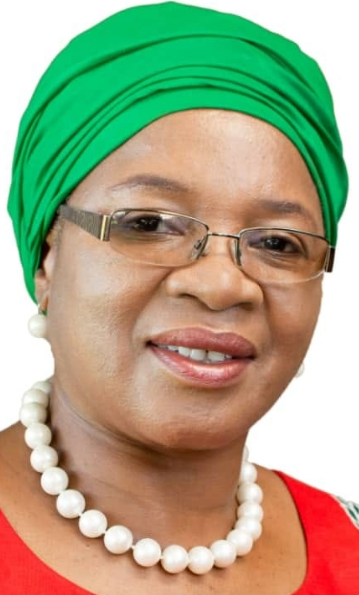

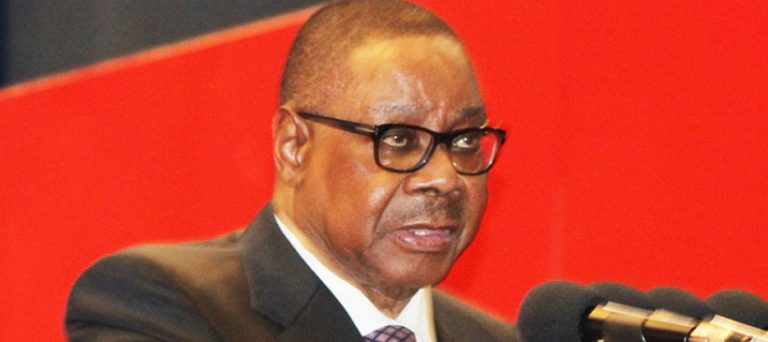
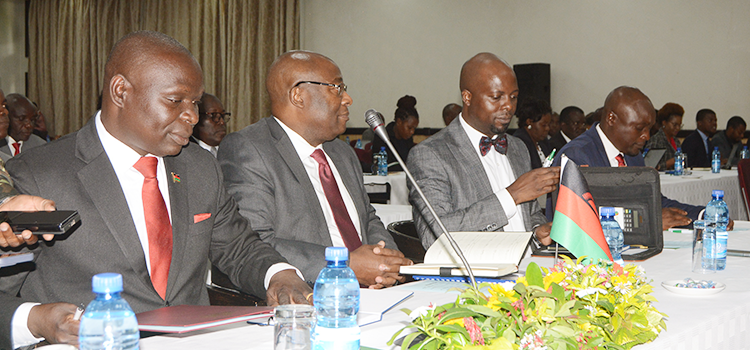

.jpg)
